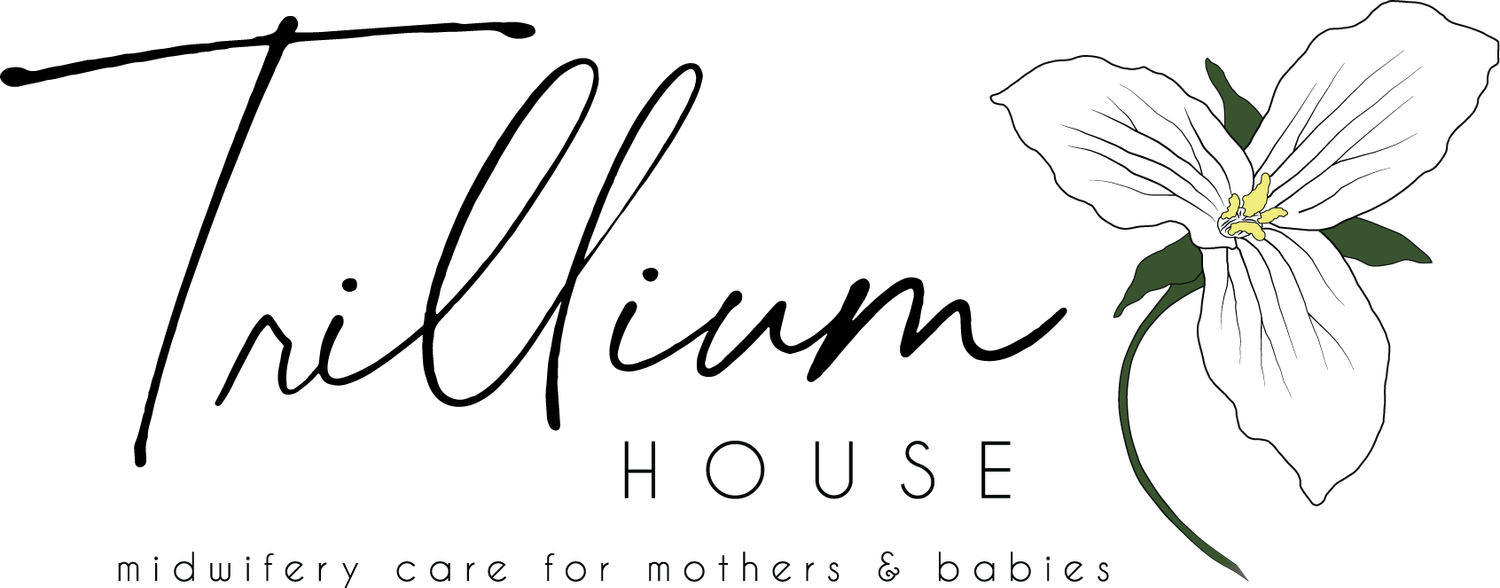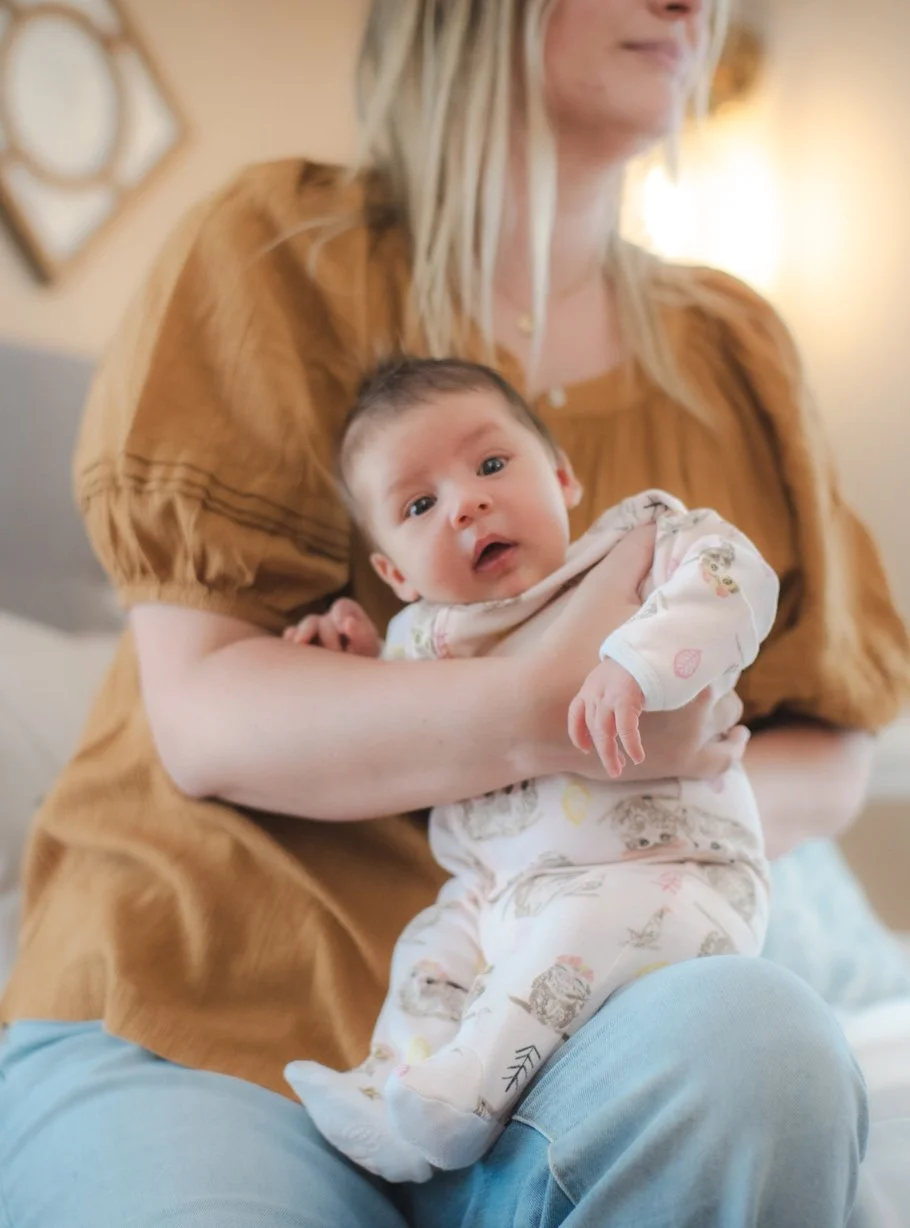Questions? We Have Answers
-
The Midwives Model of Care™ defines a standard that birth professionals - whether midwives, doctors, doulas, or imaging technicians - can choose to adopt and integrate into their professional practice. It was created in 1996 by the Midwifery Task Force, a working coalition of members from a variety of Midwifery organizations. Below is the condensed definition of the Model.
THE MIDWIVES MODEL OF CARE™
The Midwives Model of Care™ is based on the fact that pregnancy and birth are normal life processes.
The Midwives Model of Care™ includes:
• monitoring the physical, psychological and social well-being of the mother throughout the childbearing cycle;
• providing the mother with individualized education, counseling, and prenatal care, continuous hands-on assistance during labor and delivery, and postpartum support;
• minimizing technological interventions; and
• identifying and referring women who require obstetrical attention.
The application of this woman-centered model of care has been proven to reduce the incidence of birth injury, trauma, and cesarean section.
-
For healthy mothers and babies, out-of-hospital birth is safe. Having your baby at home or in a birth center greatly reduces the potential for exposure to pathogens for mother and child.
When mother and baby are under the care of a midwife, their health outcomes are consistently as good as or better than the outcomes of other models of care.
For more in-depth reading, see:
• “Improving our Maternity Care Now Through Midwifery” 2023, from The National Partnership for Women and Families.
• "Safety of non-medically led primary maternity care models: a critical review of the international literature," 2012, Australian Health Review
• "Outcomes of planned home births with certified professional midwives: large prospective study in North America" 2005, British Medical Journal
For high-risk pregnancies, however, having a baby in a hospital may be safer. Part of a midwife’s job is to monitor your and your baby’s health throughout the pregnancy and alert you if there are any signs of trouble.
-
Yes. All Trillium midwives practice as Certified Professional Midwives (CPMs), credentialed by the North American Registry of Midwives (NARM - See narm.org). The Certified Professional Midwife credential, issued by NARM, is accredited by the National Commission for Certifying Agencies (NCCA), the accrediting body of the Institute for Credentialing Excellence (ICE, formerly NOCA). The CPM is the only NCCA-accredited midwifery credential that includes a requirement for out-of-hospital experience.
-
A birth center blends the conveniences of a clinical office setting with the comfortable feel of a home. At Trillium House, midwives enjoy exam and meeting rooms that have all necessary equipment and supplies already in place. As an expectant mother, you’ll appreciate the clean, professional space, ready for your prenatal visits. Partners and family members are welcome to join you on your visits.
When it’s time to give birth, using one of our birth suites lets you focus on your labor without the distractions of chores and family at home, (nor the worries of unwanted interventions or unpleasant situations). Your birth team will be at the birth center with you to monitor you and your baby throughout the process. There is plenty of room to move around as much as you need; a birth tub for water births, conveniently-located bathrooms, and a kitchen available for the snacks and drinks you need to keep going through labor.
Trillium House rooms are professionally cleaned and all linens are professionally laundered. After your baby has arrived, you will remain at Trillium for up to five hours and then go home to rest and bond with your baby, worry-free.
Your midwife will come to your home for a check-up visit 24-48 hours after birth, and will remain on call for you, should questions or concerns come up between visits.
-
Midwives provide medical care to expecting mothers and their babies.
Doulas provide emotional, relational, physical and environmental support to clients. They are not medically trained and do not give recommendations on the clinical health and well-being of mothers or babies. They do help mothers prepare for childbirth and help them through the birth process, using natural, non-medical methods. They are required to participate in a series of classes including childbirth education and lactation support.
You can read more about what they do and the benefits of having a doula here.
-
The midwives affiliated with Trillium House are all independent contractors and set their own prices. Generally, for complete care throughout your pregnancy, during your birth, and in the postpartum period, you can expect to pay in the range of $5,000 to $6,000.
Giving birth at Trillium House involves a separate facilities fee of $1,000. There are special rates for Medicaid recipients.
One of the goals of The Trillium Collaborative is to provide funding to expectant mothers who need it, so please contact us if payment is a barrier to care for you.
-
Medicaid will cover the majority of midwifery care. The facility fee for use of the birth center is not currently covered.
Private insurance coverages will vary. Your midwife will discuss payment and insurance options with you as part of your first consultation.

